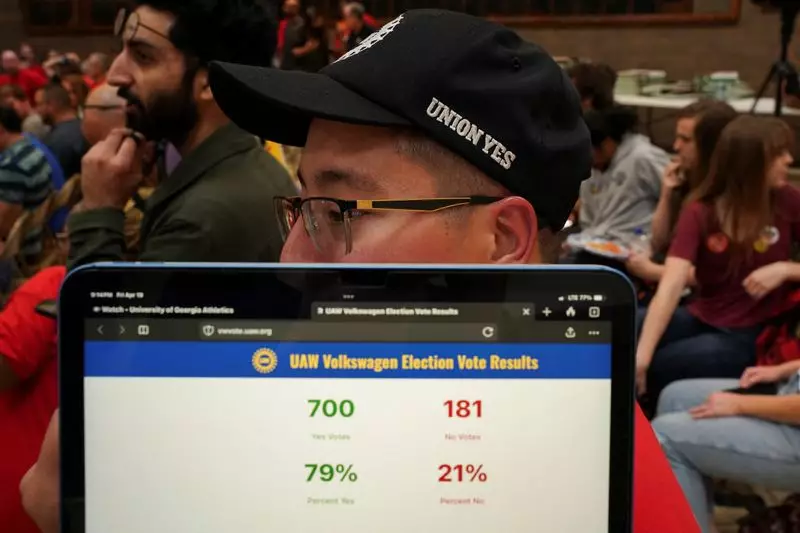The recent vote at Volkswagen’s Tennessee plant, resulting in the workers deciding to join the United Auto Workers (UAW), marks a significant milestone in the history of labor unions in the U.S. South and West. With a majority of eligible workers casting their ballots in favor of the UAW, this victory is seen as seismic for the union, especially as it pushes into new territory. The unofficial tally of 2,450 pro-UAW ballots out of the 4,300 eligible voters shows a clear endorsement of the union at the Chattanooga factory.
The road to unionization at the Volkswagen plant in Chattanooga was not without its challenges. Previous attempts by the UAW to secure votes at the same plant in 2014 and 2019 had fallen short. However, this time, the landscape was different. Public support for unions had been on the rise, and successful contract negotiations with major automakers had set the stage for a more favorable outcome. The UAW’s commitment of $40 million through 2026 to unionize plants across the U.S. demonstrates their dedication to this cause.
The unionization of Volkswagen’s Tennessee plant is not just a victory for the UAW but also has broader implications for the auto industry as a whole. It sets a precedent as the first auto plant in the South to unionize via election since the 1940s, and the first foreign-owned auto plant in the region to do so. This could potentially influence other foreign-owned plants in the South to consider unionization in the future. The UAW’s success at Volkswagen may embolden workers at other non-union facilities to follow suit.
Political and Economic Factors
The timing of the UAW victory at the Volkswagen plant is notable, considering the current political and economic climate in the U.S. President Joe Biden’s support for organized labor, as evidenced by his participation in picket lines in Detroit, has signaled a pro-union stance from the administration. The double-digit raises and cost-of-living increases negotiated by the UAW with major automakers have also contributed to a renewed interest in unionization across various industries.
Following the success at Volkswagen’s Tennessee plant, all eyes are now on the upcoming UAW election at the Mercedes plant in Alabama. With a majority of workers already expressing support for unionization by signing cards, the stage is set for another potentially transformative moment in the Southern auto industry. The outcome of the Mercedes election will provide further insight into the evolving landscape of labor relations in the region.
The decision by workers at Volkswagen’s Tennessee plant to join the United Auto Workers represents a historic victory with far-reaching implications. This move not only strengthens the UAW’s presence in the South but also sends a message to other companies and industries about the changing attitudes towards unions in the U.S. The road ahead may still be challenging, but the momentum gained from this success could pave the way for further advancements in labor rights and worker empowerment in the South and beyond.

